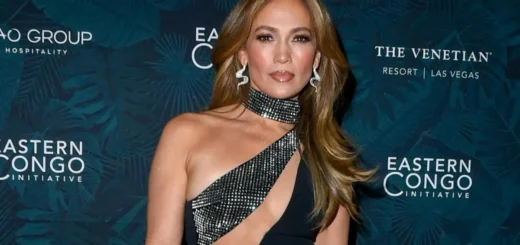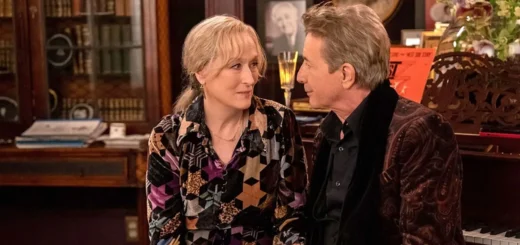Jeff Daniels: “Making ‘The Looming Tower’ is like shooting a novel”
We had the chance to speak with four time-Golden Globe nominee Jeff Daniels about his role in The Looming Tower, the Hulu miniseries based on the Lawrence Wright book of the same title. Daniels plays real-life hero John O’Neill, the head of the I-49 counter-terrorism division of the FBI, who tried to stop Osama Bin Laden before 9/11 and was fired before the attack, just to land a new job as head of security at the World Trade Center. We also discussed his experience as a fresh nominee in 1986 with The Purple Rose of Cairo and his amazing capability to play both drama characters like O’Neill and funny ones like Harry in Dumb and Dumber.
Do you think John O’Neill is a tragic American figure?
Or hero. It is tragic because of what happens to him at the end and that he was right. And he may have gone about it in a way that put people off or upset people or put bridges behind him. But he was right. And heroes are usually right.
How was your preparation for this role?
Besides the book, I met with his partners Ali Stefan and a couple of other guys who had worked with John longer than Ali had. They were very helpful and they told me the good and the bad and the strengths and the weaknesses. They really painted a picture of a human being, which is a lot easier to play than something like a one-note caricature. They talked about his moods, they didn’t understand it all the time, (and) they still don’t. Certainly, his personal life was a mess, but they loved him. And he loved them and he would do anything for them. As they say, he had their back. Every man and woman in the field that was working under him in dangerous parts of the world, they knew that John O’Neill had their back. He would go to Washington and get what they needed, or there would be Hell to pay. But he was a complicated guy and they spoke to that as well.
From the very beginning of the show, we see this dark side of John, all his infidelities, and all his affairs. Why do you think it’s important to show these other sides of him?
What I took away from that was one, it happened, that is part of his story. Two, I made the choice that he was searching for something, with each woman and with a family and wife and with each girlfriend, he wasn’t just living large or gulping life like his partners had said. I thought he was searching for something. And he had it in the Catholic church when he was younger and then he left the church and started doing the things that he was doing. But in the end, I think his true love and his home, the thing he was searching for, was there the whole time and that was the FBI. He loved the FBI and as his partners told me, that was his number one mistress. And I think when the FBI pushed him out after 25 years, which happens later in the series, that’s when you see John grow up, start to focus on one woman and try to change himself.

Jeff Daniels as John O’Neil in The Looming Tower
hulu
What have you learned about American politics making this show?
I learned about the bureaucracy of American politics, especially at the federal level. There are many people at the FBI and the CIA who weigh in on decisions. And John’s way was just let me do what I want because I am right. And that is not how Washington works. And then like any place, there are people that like each other and people that don’t. And when they don’t, sometimes that can get in the way of what you both need to get done as professionals. And the human side of working together when things aren’t going well, which is what happened between John and the CIA. So politics are not immune from people just hating each other and then having to work together and not being able to. No different than anything else, I guess.
Do you think the CIA is responsible for not stopping 9/11?
No, I don’t know that. All we can do with the show is present that with a question. And perhaps the show will make people dig a little deeper and find out who did what when. But I think the series asks the question, were there people responsible for this other than Bin Laden and Al Queda? Are there things that could have been done differently to stop 9/11? Are there things that could have been done? Were there things done, either with personality traits or dislikes or concealment and all of that? That we didn’t share intelligence the way we should have? And part of it was two different ways of working. The FBI worked one way and the CIA worked in another. They were working towards the same thing, they were just taking different routes to get there. And that’s part of what was going on too. So it isn’t strictly a who’s to blame kind of a thing.
In the show, you have many scenes where you go head to head with Peter Sarsgaard, and your character is sure that he is right and his character is sure that he is right. How heated was it when you shot those scenes and how do you go and have a beer with him afterward?
Oh, I am glad it was that good because we got along great. He is such a good actor that I just found myself using him. Every time I would spit at him, he would laugh or something and that would just piss me off even more. And then they would say cut and I would shake my head and look at him, and he would be laughing at me. It was great fun. People like Peter Sarsgaard and Michael Stuhlbarg, I had a lot of scenes with those guys, and they make you better. They are the kind of actors that challenge you and make you better. I enjoyed working with Tahar (Rahim), he is young and is a big deal in France I hear, which is terrific.
You have been working for a long time. Are you surprised by the level that American television has today because this show couldn’t have happened 20 years ago.
I am surprised and fortunate and grateful because it seems like that is where all the writers have gone. The writers have been given a lot of freedom and control on HBO, Showtime, Netflix and Hulu and Amazon. It reminds me of when everybody was making indie movies. And I would make them because the writing was better. And it just was more challenging, it was trickier, it was complex. Scott Frank, for example, I did a movie with him called The Lookout, which was with Joe Gordon Levitt. But it wasn’t an indie, it certainly was a lower budget movie, that is to be sure. And Scott had that Western, Godless, and no one would make it. And then Netflix happened, and after about 15 years, he showed it to Netflix, and they said we will do it if you make it seven hours long. They want good writing, and you don’t have to please everybody. And a lot of movies sometimes, they have their target audience and they have to please as many people as possible in order to last another weekend. You can do something like Looming Tower and if you are not into that complex kind of political kind of thriller, you can go and watch something else. But for those people who are, it’s 10 hours of it, it’s like shooting a novel. So I think it came along at just the right time, and lucky me.

…”and then there are actors who can do both”. Clockwise from top left: Jeff Daniels in The Purple Rose of Cairo, Godless and Dumb and Dumber.
orion/netflix/new line
You have been nominated for the Golden Globe four times. How did each nomination help you in your career and what did they reflect?
It’s like any award, people attach that to your name, “four-time Golden Globe nominee Jeff Daniels,” and they can’t take that away from you. So it’s nice. Good actors get a Golden Globe nomination or they win or get an Oscar or Emmys, all that stuff matters, the same with SAG awards. It’s all part of being taken seriously. But it beats the alternative of not getting one.
How was your experience going there the first time with The Purple Rose of Cairo?
It was pretty terrible because I had a publicist at the time who gave me the wrong time for the Golden Globes. So when I got there, they were still putting the silverware on the tables. So I went in and I just sat at one of the tables for two hours, maybe two and a half or three. It was ridiculous. And we didn’t have cell phones, so in the old days, I read what I had in my wallet. You pull your wallet apart and you look at pictures.
What came after that made up for the mistake?
Well, it’s nice to see everybody. I mean, that was a blip. But it was nice to see everybody and I got to see some people that I would never have met otherwise because we were both at the Globes. So that’s good, and you always want to get invited to the party. It’s always nice when you get the invitation.
How important was Purple Rose to you?
It told me that I could do this for a living. Halfway through the movie, Woody Allen told me I was good. And for a young actor, that is a huge turning point. Because I knew if I was good enough for Woody, I was good enough for anybody, so why don’t you stick around and keep going? It was a huge motivation and inspiration. And so when it came time years later to name my theater, I didn’t want to put my name on it, so I put the name of that movie, which was so important to me.
You really were amazing in Dumb and Dumber. How hard has it been to explain over the years to the fans of that movie that you were a serious actor, making an exception as a really funny comedian?
There are actors who can do comedy and there are actors who can do drama, and then there are actors who can do both. I always wanted to be both. Peter Sellers was both and Jack Lemmon was both. The same with George C. Scott. I always admired the actors who could do both, like Olivier. I don’t know when people started deciding that you had to be one or the other. But that has never been on my radar. Dumb and Dumber, you take it as seriously as you would take doing Looming Tower. You got to create a guy that is real. And I remember making the choice that he has an IQ of 8. Not 7, not 9, but 8. But for some reason, that worked for me, to have a single digit IQ. Once I had that, then everything else worked.


